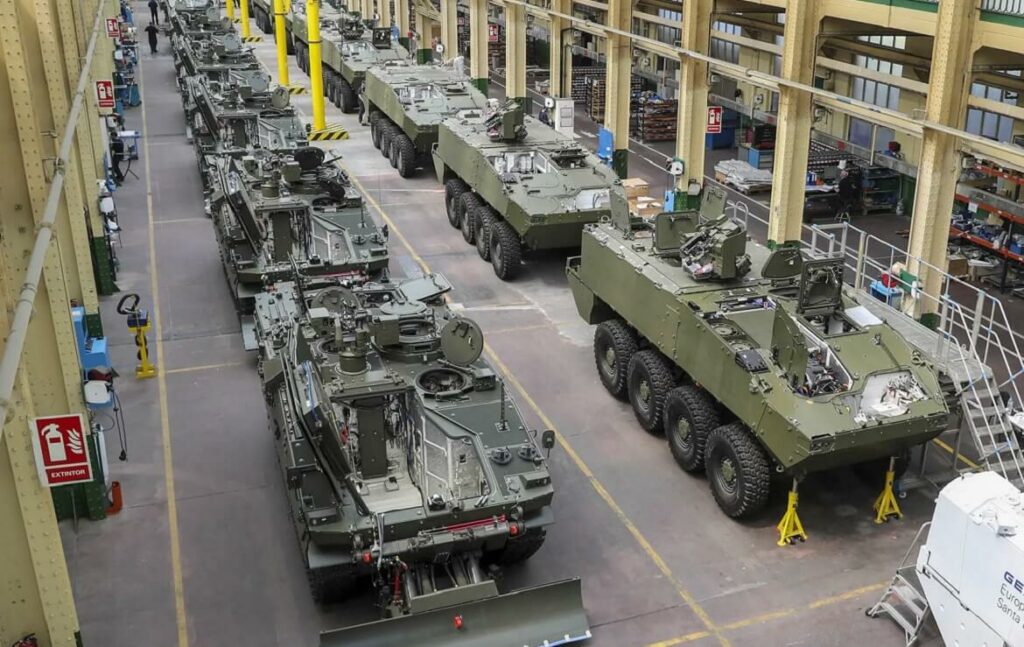It may be ‘‘five minutes to midnight for Europe”, but boosting defence while slashing development budgets will mean less security - no matter how many weapons are obtained.
Like the sword of Damocles, Russia hangs precariously over the heads of EU and NATO countries alike, representing an impending threat.
This is the theme of the ongoing political debate on European security. And it is justified: Russia’s invasion of Ukraine has sparked the bloodiest conflict on European soil since World War Two.
While countries in Eastern Europe rightly fear they could be next, Putin’s Russia is already waging hybrid warfare across the continent; sabotaging undersea cables and conducting cyberattacks. Contributing to the sense of insecurity is President Trump’s volte-face regarding nearly 80 years of the US providing Europe with security guarantees.
In the face of this instability, we are told that Europe needs to ‘step-up’ and fend for itself. In other words: boost defence spending. European countries - who are collectively already the second-largest military spenders in the world - are now accelerating the global arms race as a range of countries, such as Poland, France, Germany and even traditionally neutral Ireland, announce increases to their defence budgets. To these the EU’s unprecedented €800 billion ReArm Europe can be added.
There is a dissonance taking place, however. These increases in defence expenditure come at the same time that European countries slash their international development budgets. Belgium, the UK, France, the Netherlands, Sweden, and the European Commission have recently cut theirs, with plans already in motion for Germany to follow suit.
Justifications for this contagion of cuts vary: ideology, budget constraints, or tied to increasing defence and the need to free up resources to support Ukraine. In some cases, they commenced a few years ago; experts have already been referring to a “post-aid” world as capitals reduced their development footprint.
However, as countries continue to pledge hikes in military spending we can expect further cuts to European official development assistance. One needs only to take a look at the case of the UK. While it dramatically reduced its aid budget during the Coronavirus pandemic, the government’s plans to boost defence spending will be funded by further cutting development assistance.
Honing in on traditional military security risks displacing - or accelerating the displacement - of perennial, non-traditional security threats. Whilst Russia looms large, it would be myopic to view European security as a question of Either/Or.
Collectively, the EU and its member states are the largest aid donors in the world. These cuts represent millions in official development assistance, which are compounded by the complete gutting of USAID by the Trump Administration. With the world’s biggest aid donors pulling the plug, global efforts to support the world’s most vulnerable people are being washed away. Any supplant by smaller nations, however noble, will not be enough to fill this gap.
That development assistance is flawed is well-documented. However, the drastic cuts will directly impact the 300 million people around the world to whom development assistance is a life-line. As laid out by the UN High Commissioner for refugees: they mean children will be left without school; the loss of access to services for women at risk of rape; and less shelter, food, and water for vulnerable communities.
But they also make Europe - and Europeans - less safe.
Supervising, monitoring, and countering emerging contagious health threats is a vital function of development assistance. This is done through supporting local communities, governments, and international bodies like the World Health Organisation who work together to help humanity respond to emerging health threats - often containing diseases before they even spread into the endemic or pandemic stage.
International assistance played a role in containing the 2014 Ebola epidemic, for example. Yes, analysis by civil society organisations found that the response was flawed but gutting support to local health systems and international bodies was not one of the recommendations. The response to Ebola also exposed the flaws in prioritising a traditional understanding of security over health as this impeded the international response to the outbreak.
As experts warn that the risks of pandemics are increasing in frequency - and with outbreaks such as Marbug already underway - now is not the time to cut back on support for global health. As we learnt from the Coronavirus pandemic, diseases that originate in one part of the world can drastically impact others. A (further) gutted global health system will not be able to assist in overcoming infections; be it Coronavirus, Ebola, Marbug - or even worse.
The effects of these cuts are already being felt: they have led to the suspension of HIV treatment, testing, and prevention in 50 countries, with further cuts running the risk of upending years of work on tuberculosis, polio, and malaria. And the cuts will impact other vital work, including the global fight against the climate crisis and the prevention of conflicts from erupting. To borrow a realpolitik framing of international assistance, they also reduce Europe’s soft power and its ability to counteract Russian and Chinese influence.
We must not confuse increasing defence budgets at all costs with increasing European security: instead, reducing development assistance contributes to Europe’s - and the world’s - insecurity. Supporting the world's most vulnerable should be viewed as the moral imperative that it is, as well as something that provides for Europeans' health and safety.
Damocles, upon sitting in the king’s throne and realising that the sword was hanging above his head by a horse's hair, was fortunate enough to escape. Europeans may not have such an easy way out. Nevertheless, avoiding one sword should not come at the risk of being cut by another.


